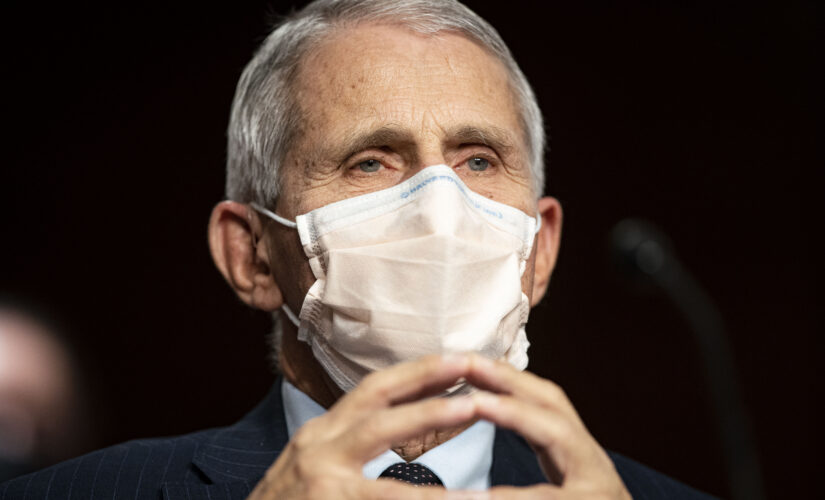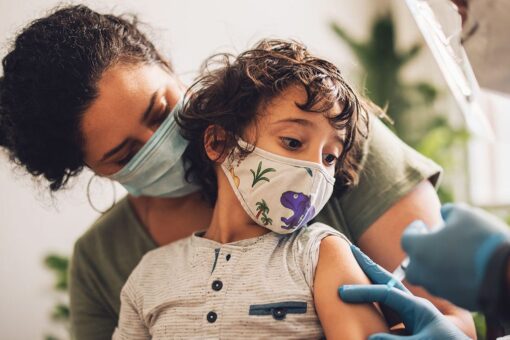Dr. Anthony Fauci revealed that officials are re-evaluating the travel ban on several southern African countries after a dozen other countries confirmed cases of the COVID-19 omicron variant.
The United States – along with dozens of others across Europe and Asia – implemented travel bans against travelers from seven southern African nations after the World Health Organization (WHO) confirmed the existence of a new variant, later designated omicron.
Anthony Fauci, director of the National Institute of Allergy and Infectious Diseases, listens during a Senate Health, Education, Labor, and Pensions Committee hearing in Washington, D.C., U.S., on Thursday, Nov. 4, 2021. Younger children across the U.S. are now eligible to receive Pfizer’s Covid-19 vaccine, after the head of the Centers for Disease Control and Prevention this week granted the final clearance needed for shots to begin. Photographer: Al Drago/Bloomberg via Getty Images
Officials in South Africa, the U.N. and WHO criticized the decision to lockout “one part of the world” in response to new information, with one official referring to the action as “travel apartheid.”
NORWAY CHRISTMAS PARTY MAY HAVE SPARKED LARGEST OMICRON VARIANT OUTBREAK OUTSIDE OF SOUTH AFRICA
Other nations, including the United States, have now confirmed cases of the omicron variant within their borders, and Fauci said the U.S. is looking to reevaluate the travel ban in the face of the new information – but did not say when they might lift the ban.
A hospital worker ensures people practice social distancing as they wait in line to get vaccinated against COVID-19 at the Lenasia South Hospital, near Johannesburg, South Africa, Wednesday, Dec. 1, 2021. Despite the global worry, doctors in South Africa are reporting patients with the omicron variant are suffering mostly mild symptoms so far. But they warn that it is early.
(AP Photo/ Shiraaz Mohamed)
“That ban was done at a time when we were really in the dark – we had no idea about what was going on, except that there had been an explosion of cases of omicron in South Africa,” Fauci said on “State of the Union.” “So when the ban was put on, it was to give us time to figure out what was going on.”
CONTACT TRACING REVS UP IN SOME STATES AS OMICRON REACHES US
“Now that we have more and more information about cases in our own country and worldwide, we’re looking at that very carefully on a daily basis,” Fauci continued. “Hopefully, we’ll be able to lift that ban in a quite reasonable period of time.”
People queue from the Muenster Bridge to the Zurich City Hall to cast their ballot at the City Hall polling station to vote in a COVID-19 referendum, in Zurich, Switzerland, Sunday, Nov. 28, 2021. The coronavirus’s omicron variant kept a jittery world off-kilter Wednesday Dec. 1, 2021, as reports of infections linked to the mutant strain cropped up in more parts of the globe, and one official said that the wait for more information on its dangers felt like “an eternity.”
(Michael Buholzer/Keystone via AP, File)
Fauci added that officials felt “very badly” about the “hardship” the travel ban may have created for the southern African countries.
One of the encouraging signs Fauci cited is that the severity of omicron has not yet matched its clearly increased transmissibility.
CLICK HERE TO GET THE FOX NEWS APP
While cases have severely spiked in the past two weeks, with a nearly vertical climb in daily new cases, South Africa has yet to report a similar spike in hospitalizations or deaths, The New York Times reported. Officials need a few more weeks to observe any possible change in these numbers, but Fauci urged optimistic caution over the omicron.




